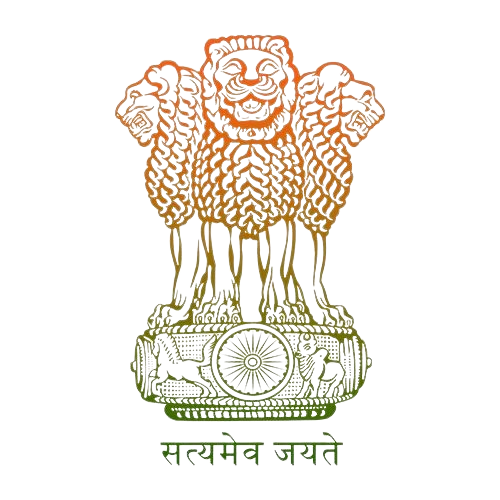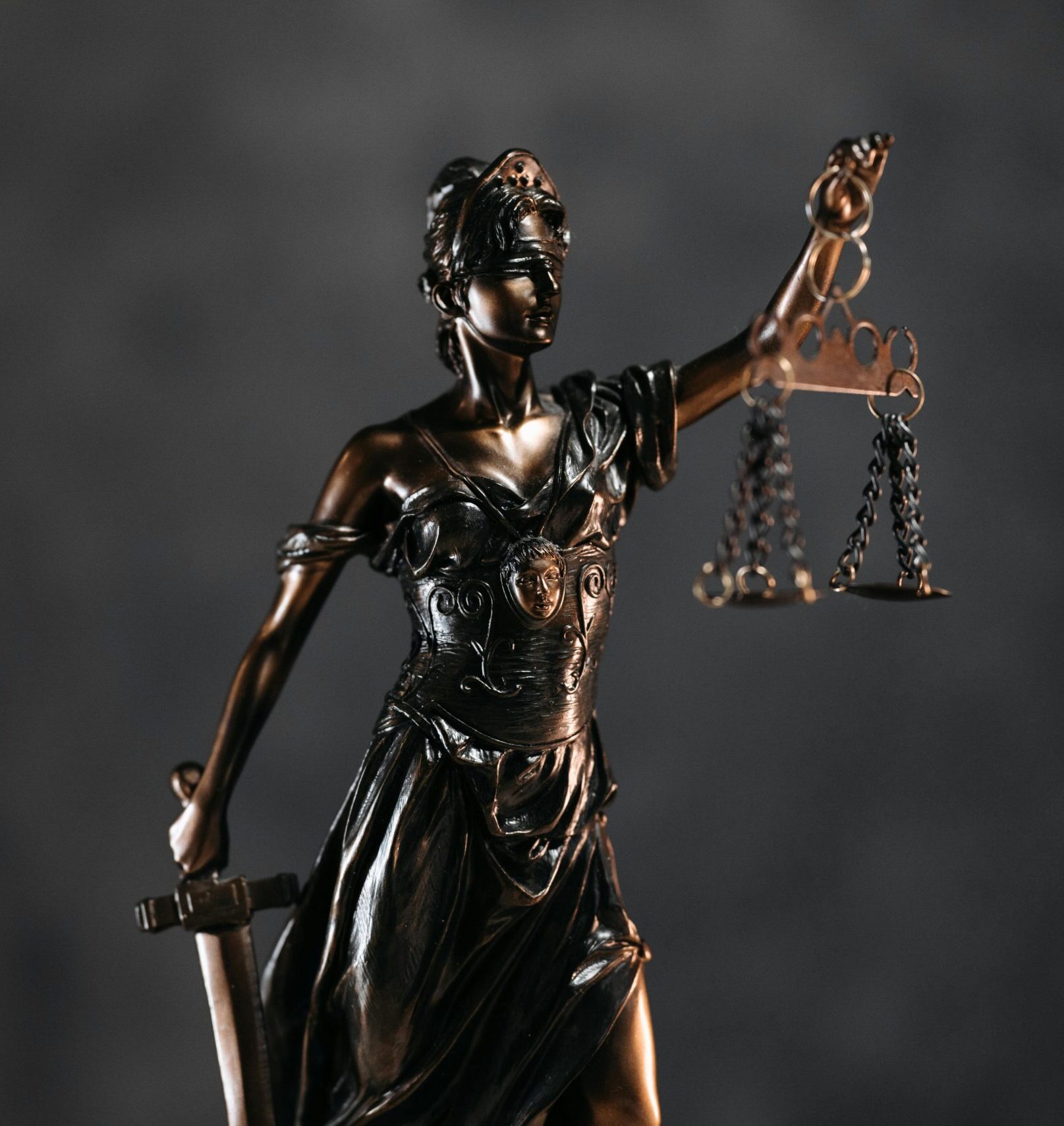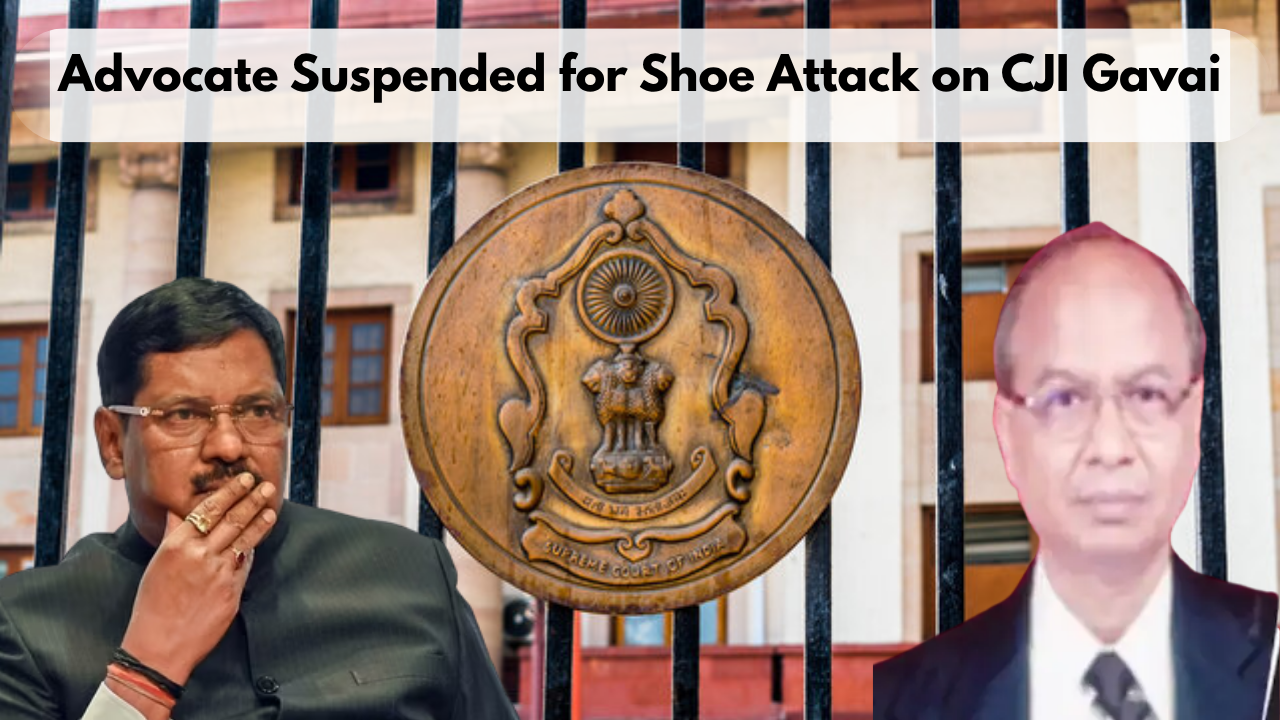On Oct 6, 2025, Advocate Rakesh Kishore tried to throw a shoe at CJI B.R. Gavai, sparking national outrage and swift disciplinary action
What Happened?
The Incident
At about 11:35 a.m. a Supreme Court hearing was held, but at one point, Rakesh Kishore took off his shoe and attempted to hit CJI Gavai with it. Guarantee of security staff came right in time and no damage was done. Kishore used slogans to indicate his dissatisfaction with so-called disrespect to Sanatan Dharma. It has been reported that he came in with identity cards of several bar associations to get into the courtroom. The Chief Justice was not hit by the shoe and events went back to normal soon after the interruption.
The Trigger
The case was allegedly related to the statements of CJI Gavai about a case of restoring a damaged idol of Vishnu in Khajuraho, Madhya Pradesh. Kishore asserted that the comments made by the Chief Justice were an insult to the religious feelings and he was therefore taking extreme measures. The CJI made it clear that he did not disrespect any of the religions and did not intend to insult anyone.
Key Figures
Rakesh Kishore (Accused Advocate)
- Age: 71, lives in Mayur Vihar East Delhi.
- Registered at the Bar council of Delhi in 2009.
- Submitted public-interest petitions and writs, primarily on civic matters, but little known in high-profile cases in the Supreme Court.
- After the incident, Kishore claimed that he was provoked by God and he was not very apologetic.
B.R. Gavai (Chief Justice of India)
- Present Chief Justice of India.
- Worked as constitutional and administrative lawyer before his elevation having previously worked in the Bombay High Court in Nagpur.
- His statements in Khajuraho case inadvertently caused an outrage of people which resulted in the attack.
Other Stakeholders
- Bar Council of India (BCI): The regulative body of advocates: Kishore was immediately suspended.
- Bar Associations & Senior Advocates: Bad minded the act and reiterated that such demeanour is inappropriate to on-the-job judicial purview.
- Government & Solicitor general: Referred to the incidence as regrettable and emphasized that the courts should be honored.
- Political Leaders: Shown to be concerned about the attack as it underscored it as an assault on constitutional institutions.
Criminal Prosecution and Punishments
BCI Suspension
The BCI suspended Rakesh Kishore provisionally, and he was not allowed to practice law in any court and tribunal in India. There has been a presentation of a show-cause notice and he has to explain to the court why he does not deserve permanent suspension. The immediate compliance is the necessity of Kishore, and all the bar cards and the right of accessing the court have been suspended until the suspension.
Contempt and Criminal Implications
Though criminal charges were not established, there may have been criminal contempt of court since it interfered with the court process and disturbed the court. Depending on subsequent actions, potential penalties may be fines, imprisonment or disbarment. The case has also brought up the security and bar access measure at the courtroom.
Reactions and Reflections
Public-Institutional Response
The attack was condemned by legal bodies all over the country and termed as a daring attack of the dignity of the judiciary. These concerns were echoed by State Chief Ministers and political leaders, who placed much emphasis on constitutional institutions being guarded. The Prime Minister termed the incident as unacceptable as on one hand he confirmed the sanctity of judiciary is paramount.
Ethical and Professional Significance
The advocates are viewed as court officials and are subjected to high ethical codes. Any form of violence and disrespect to the judiciary destroys the trust of the people in the judicial system. The swiftness with which the BCI responded sends a powerful message concerning the upholding of discipline and decency in practice in law.
Future Implications
Suspension may be permanent in case Kishore does not provide a justification to his actions. Contempt proceedings can be raised later and security systems in courts are also likely to be audited to avoid such situations. According to the case, there should be boundaries established among protest, expression, and professionalism in court.
Conclusion
The attempted shoe attack on CJI B.R. Gavai of Advocate Rakesh Kishore is a grave violation of the ethics of the profession and an affront to judicial power. The immediate suspension of the lawyer by the Bar Council of India, the overall criticism and the possible legal implications emphasizes on the need to protect the dignity of judiciary. This incidence is a lesson to the advocates that they should continue upholding the utmost level of ethics, both within and without court rooms, to avoid the loss of trust in the judicial system.
Your Attractive Heading
Thought
he case of the shoe attack on CJI B.R. Gavai is an eye opener of the fact that personal anger or even religious sentiment can never warrant violence on any of the judicial institutions. Respect, ethics and professionalism are the main pillars of a working democracy and any form of violation does not only destroy the judicial system but it also destroys the confidence of people to the rule of law.

For the latest updates on legal news and Supreme Court developments, visit DeepakVerma.tech
https://deepakverma.tech/delhi-is-considered-the-best-place-for-lawyers-because/“Discover why Delhi stands out as the top hub for lawyers! Read my latest insights now on DeepakVerma.tech.

